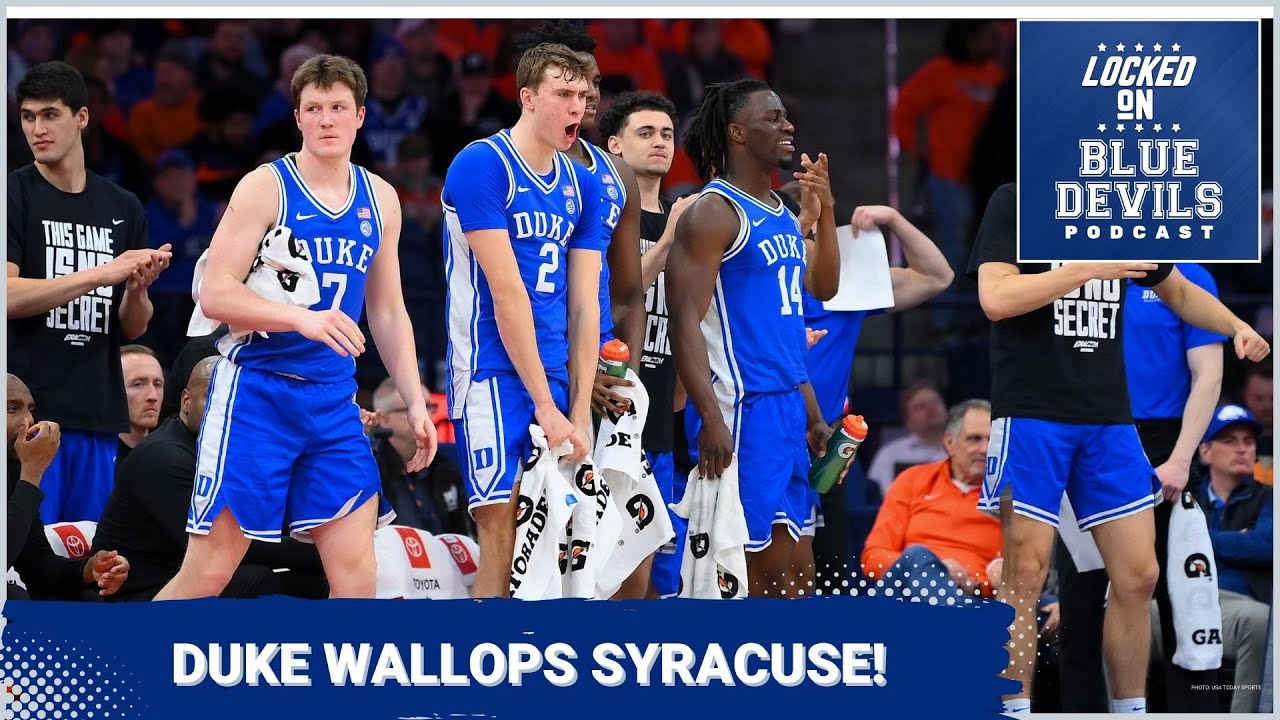The Atlantic Coast Conference (ACC) has unveiled the men’s basketball schedule for the 2025–26 season, introducing a new 18-game format that significantly alters the landscape of conference play. This change, while aiming to balance competitive fairness and logistical efficiency, has sparked considerable debate among fans, coaches, and analysts alike. For the Duke Blue Devils, the revised schedule presents both opportunities and challenges that will shape their pursuit of excellence in the upcoming season.
Under the new scheduling model, each ACC team is assigned two primary partners for home-and-home series, one variable partner for a home-and-home series, and a selection of home-only and away-only opponents. This structure is designed to ensure that over a four-year period, each team will play every other team both at home and away, fostering a more equitable competition across the conference. However, the immediate impact of this change is a departure from the traditional round-robin format, leading to some notable absences in team matchups.
For Duke, the 2025–26 ACC schedule includes home-and-home series with their primary partners: North Carolina and Louisville. These matchups are particularly significant, as they involve longstanding rivalries that are central to the Blue Devils’ competitive identity. The games against North Carolina, in particular, are among the most anticipated in college basketball, drawing national attention and adding an extra layer of intensity to the season.
In addition to the home-and-home series, Duke will host several teams at Cameron Indoor Stadium. These home-only games include Boston College, Georgia Tech, Wake Forest, Virginia, and Syracuse. Hosting these teams provides Duke with the advantage of playing on their home court, where they have historically performed strongly. The presence of teams like Virginia and Syracuse at Cameron Indoor is expected to draw large crowds and create an electric atmosphere, contributing to the Blue Devils’ home-court advantage.
Conversely, Duke will travel for away-only games against California, Florida State, NC State, Notre Dame, Pitt, Stanford, and Virginia Tech. These road games present unique challenges, as playing away from home often requires teams to adapt to different environments and fan dynamics. Notably, the game against California marks the first time the Golden Bears will visit Cameron Indoor Stadium as ACC opponents, adding an element of novelty and excitement to the matchup.
One of the most striking aspects of the 2025–26 ACC schedule is the omission of a regular-season game between Duke and Miami. Under the previous scheduling format, teams played each other both home and away, ensuring that all matchups occurred regularly. The new model, however, has led to certain teams not facing each other during the regular season. The absence of a Duke-Miami game has raised questions about the balance and fairness of the new scheduling approach.
Critics argue that the elimination of certain matchups, especially those involving high-profile programs like Duke and Miami, diminishes the overall quality and appeal of the conference schedule. The lack of a round-robin format means that some teams may not face all their conference rivals, potentially impacting the integrity of the conference standings and the seeding for the ACC Tournament. Additionally, the absence of certain games reduces opportunities for fans to see their teams compete against all conference opponents, which can affect fan engagement and interest.
Despite these concerns, the new scheduling model aims to address logistical challenges posed by conference expansion. With the inclusion of teams like California, Stanford, and SMU, the ACC has had to adapt its scheduling to accommodate travel distances and time zones. The 18-game format is seen as a compromise that balances the need for fairness with the practicalities of a geographically diverse conference.
For Duke, the 2025–26 season presents an opportunity to assert dominance within the ACC under the guidance of head coach Jon Scheyer. The Blue Devils return a talented roster, including standout players from the previous season, and welcome a highly anticipated recruiting class. The combination of experienced leadership and fresh talent positions Duke as a formidable contender in the conference.
The home-and-home series with North Carolina and Louisville will be pivotal in determining Duke’s standing within the ACC. These games are not only crucial for conference standings but also carry significant implications for postseason seeding and national rankings. A strong performance in these matchups can bolster Duke’s resume and enhance their prospects in the NCAA Tournament.
The home-only games provide Duke with the opportunity to capitalize on their home-court advantage. Historically, Cameron Indoor Stadium has been a fortress for the Blue Devils, and maintaining an undefeated record at home will be essential for a successful season. The presence of teams like Virginia and Syracuse at home adds to the challenge, as both are known for their competitive play and can pose significant threats.
The away-only games present a different set of challenges. Playing on the road requires adaptability and resilience, as teams must contend with hostile environments and varying playing conditions. The games against California and Stanford, in particular, involve long travel distances and potential time zone adjustments, which can impact player performance and team dynamics. Success in these away games will be indicative of Duke’s ability to perform under diverse circumstances.
While the absence of a Duke-Miami matchup is notable, the Blue Devils’ schedule remains rigorous and demanding. The combination of traditional rivalries, competitive home games, and challenging road contests ensures that Duke will be tested throughout the season. The team’s ability to navigate this challenging schedule will be a testament to their skill, preparation, and determination.
In conclusion, the 2025–26 ACC men’s basketball schedule introduces a new structure that alters the traditional dynamics of conference play. For Duke, this means engaging in high-stakes matchups with familiar rivals, hosting competitive teams at home, and facing challenges on the road. While the absence of certain matchups, such as the Duke-Miami game, raises questions about the fairness and balance of the new scheduling model, the Blue Devils’ path to success remains clear. Through strategic play, strong leadership, and a commitment to excellence, Duke aims to navigate the complexities of the new schedule and continue its legacy of dominance in college basketball.



